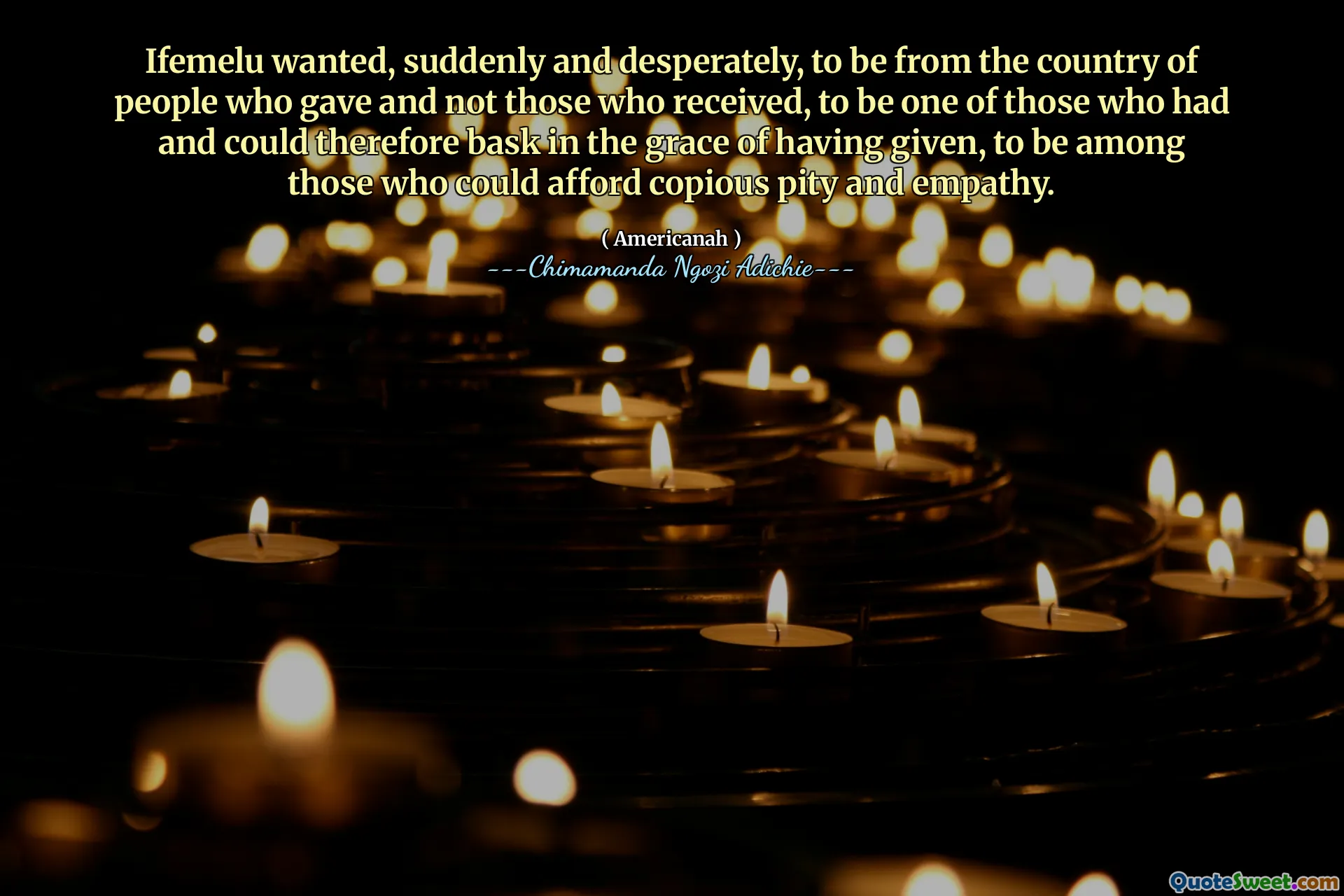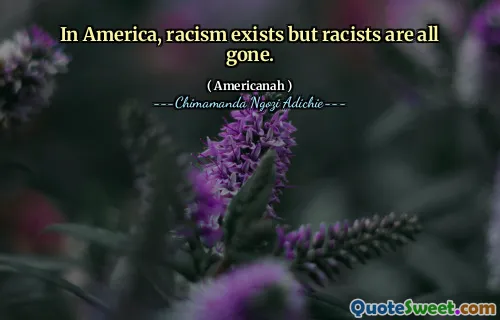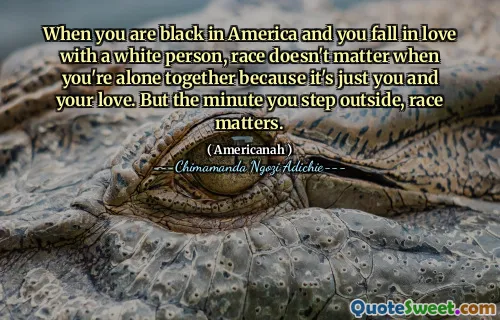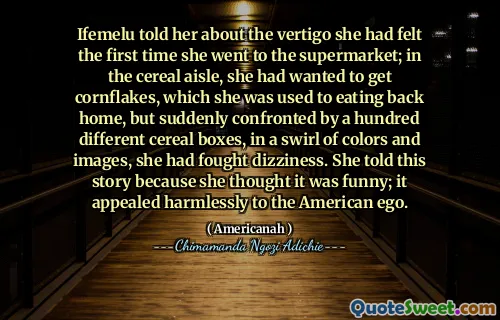
Ifemelu wanted, suddenly and desperately, to be from the country of people who gave and not those who received, to be one of those who had and could therefore bask in the grace of having given, to be among those who could afford copious pity and empathy.
This quote deeply encapsulates a profound yearning for agency and self-worth that transcends material possession. Ifemelu's desire to be 'from the country of people who gave and not those who received' speaks to a universal human aspiration of being in a position of empowerment and generosity rather than neediness or dependency. It is a reflection on the societal and personal dynamics of power and empathy—where those who give are seen as having a certain grace, not simply due to their material wealth, but because they hold the capacity and freedom to express compassion and pity.
Basking "in the grace of having given" suggests a noble quality attributed to generosity, implying it confers dignity and a deeper sense of humanity. Conversely, the subtle contrast between the giver and receiver reveals the vulnerability and sometimes shame felt by those who need to receive help. This dichotomy resonates particularly strongly in contexts of cultural or economic displacement, echoing the immigrant experience and the complex emotions involved in negotiating identity within different social structures. Ifemelu’s yearning is not only about material status but about the emotional and psychological empowerment associated with contributing rather than merely consuming.
Moreover, this quote touches on a broader commentary about empathy in society—how it is often a privilege of those who have excess to give. The ability to feel and extend pity and empathy can be hindered by one’s own unmet needs, making the act of giving a sign of abundance, both materially and emotionally. Chimamanda Ngozi Adichie masterfully distills through Ifemelu’s character a layered understanding of identity, social hierarchy, and the human desire to transcend the limitations imposed by circumstance to experience the grace found in altruism and connection.











